Cave of Consciousness
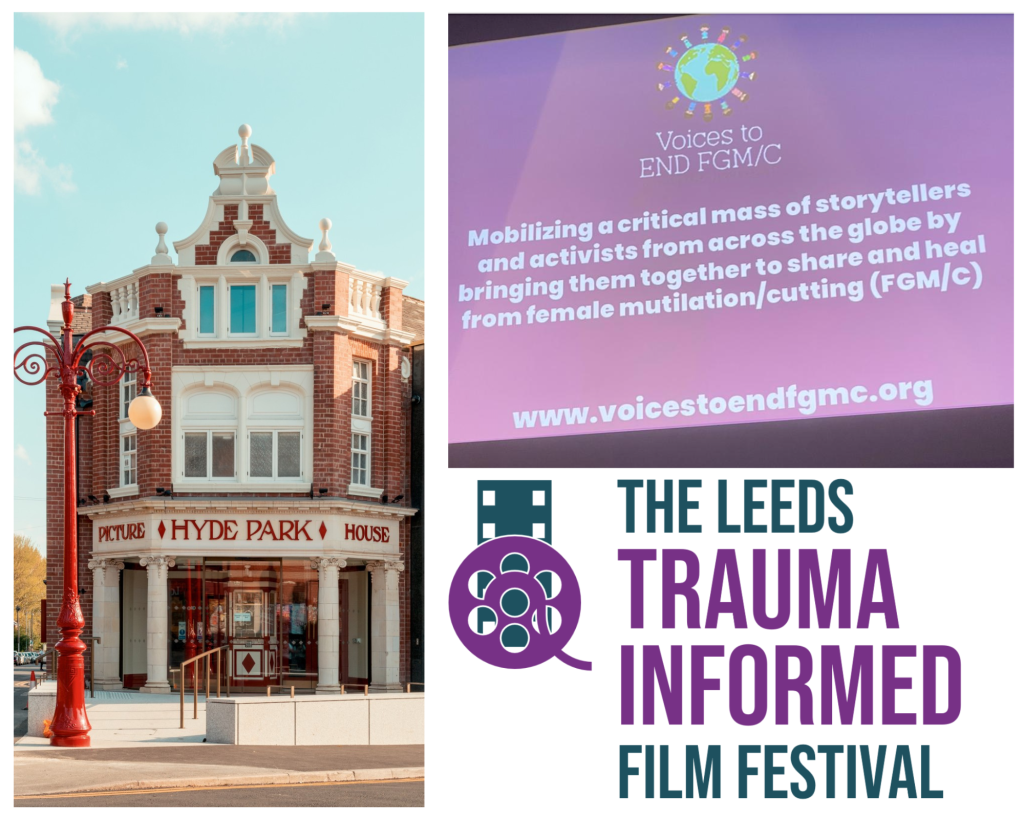
Recently Sahiyo’s Editorial Assistant Megan Seaver sat down with 2022 Voices to End FGM/C Alum Ibtisam to discuss the screening of her Voices digital story at the 2024 Trauma-Informed Film Festival, Leeds, UK. Voices to End FGM/C is a collabortive project between Sahiyo and Silence Speaks mobilizing a critical mass of storytellers and activists from across the globe by bringing people together to share and heal from their experiences of female genital mutilation/cutting (FGM/C), connect and grow as leaders in their communities, and create short videos calling for an end to this harmful practice. Below Ibtisam speaks about her experience at the screening, and how sharing her story has opened her up to new forms of activism and change. 1. Why did you feel compelled to submit your digital story to this film festival? I felt my piece was a perfect match with the festival’s theme because it is about a trauma that I went through. But most importantly, I wanted to submit my video to this festival because FGM/C is just something that’s not on people’s radar. There’s very little awareness, and so I wanted to shine a light on the issue by submitting my film. 2. How was your experience at the screening and what was it like sharing your story in that format? It felt really surreal. I’m a big film buff, so to see my own film to be projected in the cinema hall – I just don’t have words for it. Also, to see what I had shot on my little iPhone in the Ingleborough caves – to be put up on a huge screen with all the other films – was amazing. To be sitting in the audience with no one else knowing that it was my film up there, but I could hear people’s response, like the gasps, It felt larger than life. It also brought back memories of when I made the film. I felt that I had gotten some distance from it over the years. Suddenly, it felt up close and big, reminding me of the impact that the experience had on me. Seeing it in the big dark cinema hall made the impact of the film even greater for me. 3. What was the reaction to your story at the screening? Well, I didn’t know anyone in the audience, I don’t have a specific memory of people’s reactions. What I do remember is that after everyone’s films were shown, they called us up on stage and I remember I did not want to go up as I was quite shy. But there was another participant, a transgender man who had shared his film, who was very confident and he said, “What, I am going up alone? No one is with me?” and immediately after he said that I thought to myself, “Ok, I’m just going to do it. I’m going up there.” And then all of us followed him up onto the stage together! All of us standing up there, it made me feel like we were healing our trauma collectively. That it does not have to be one person’s voice, but many who stand together against trauma. 4. How was the process of submitting your digital story to this festival? Would you recommend it to other Voices alumni? I think if people are comfortable with it, and if the opportunity comes, trust your gut and take it. I think I did a bit of both, I didn’t overthink it, but at the same time I was mindful of what I was getting myself into. I was also showing my film in a setting that spoke about trauma and the audience understood that. We were in a curated safe place, so I would just say to anyone wanting to do this —just make sure you’re sharing in a safe space. Sharing my story at the film festival gave me the courage to speak out about FGM/C more in my life. I always say that courage needs encouragement. In order to be open about this, we need support. 5. What do you hope people learn from your story? First of all, I hope my story provides more awareness around FGM/C, because for most people it’s not even known. Also, my story will be included in the film festivals program at other screenings, so it’s going to reach even more people hopefully and it will take on its own life and journey. When I made this short film two and half years ago, I never would have thought that something like this would happen. The whole process of creating this film was amazing as well. In a lot of ways, I feel that the caves called to me and that I was meant to include them in my story. I just can’t believe the ways in which this story has come to life. When I was first submitting this project, I was asked whether or not I wanted to include my name, and I decided that I was ready for that – I was ready to own my story. 6. Is there anything else you would like to add? I just wanted to say that all of this is a part of the journey. In any movement you may feel that there are times when you have “done your bit”, and then you take a backseat, but there will come a time when something else pushes you to be more involved. I also want to congratulate the founders of Sahiyo, as they continue to do this work and the advocates and activists, who are doing this work in different ways. I also want to highlight how this experience has changed my perspective on my story. Before submitting it to the film festival I had a lot of time away from the video. I hadn’t watched it since the release, so seeing the film again made me realize that for myself, some parts of me had been healed, others had been revealed,
The Washington Coalition to End Female Genital Mutilation/Cutting Interview Series: Amie Kujabi
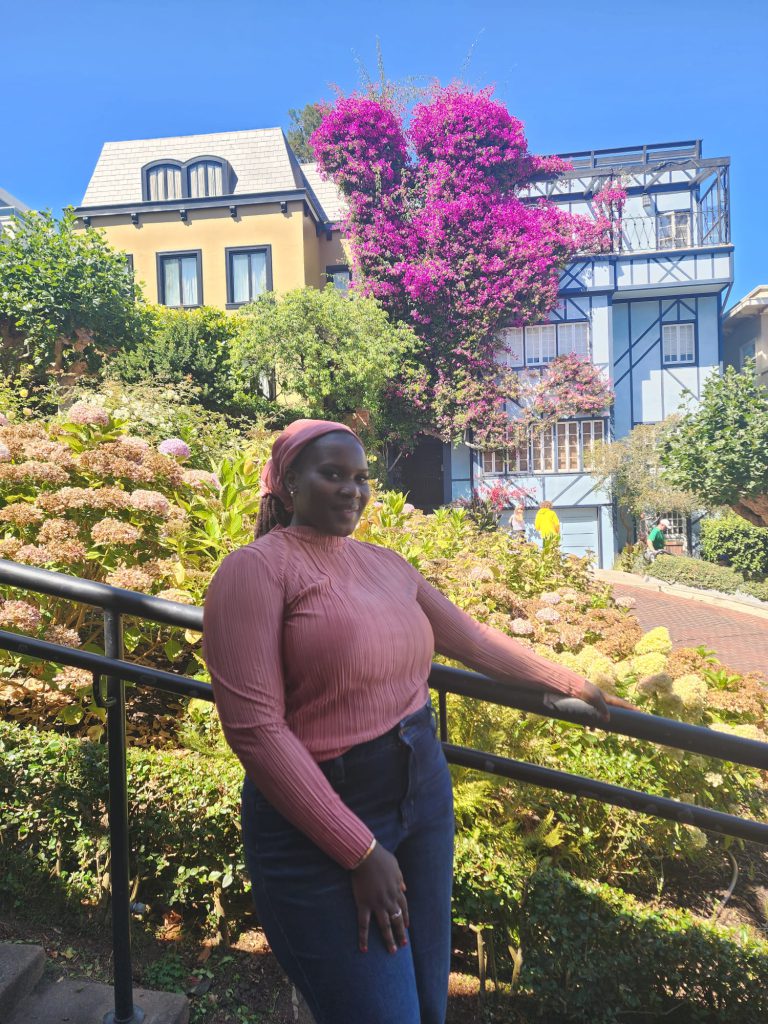
By: Sara Khattak Recently, policy interns at Sahiyo have been interviewing members of the Washington Coalition to End FGM/C to learn more about coalition member’s important work toward creating policy on female genital cutting (FGC). Sahiyo’s policy intern, Sara Khattak, talked to coalition member Amie Kujabi, a prominent advocate in the work to end FGC. Amie Kujabi, originally from The Gambia, has been involved in working to end violence against women since she was a teenager. Her personal experience as a survivor of female genital mutilation/cutting (FGM/C), has shaped her path as an advocate. Amie’s involvement with the Washington State Coalition began in late 2022, when her friend and former colleague Absa Samba introduced the group to her. Amie’s role within the coalition took on new significance when she gave testimony during hearings for Senate Bill 5453, which aimed to end FGM/C in Washington State.Amie believes that survivors’ testimonies are crucial in the policy-making process. “When you look at it, there are people that have been affected by this harmful practice, and sharing your story also boosts the importance of why certain policies or actions need to be taken.” By putting a face to the issue, survivor’s stories help lawmakers and the public understand that FGC is not just a theoretical problem but a real threat affecting lives in their communities. While Amie has received overwhelming support for sharing her story, she’s also faced some challenges from those trying to justify the practice. She emphasizes the importance of education and awareness, noting that many people, including some from practicing communities, don’t fully understand the harmful effects of FGC. Amie has observed significant progress in the work to end FGC, particularly in her home country of The Gambia, as well as other African nations. She credits much of this progress to young people taking the lead in advocacy efforts against the practice. “Young people of our generation are actually taking the lead in trying to speak out and advocate for policy change… I believe that has really impacted where we are today.” Amie stresses the need for strong, comprehensive policies that address both prevention and response. She emphasizes that laws against FGC not only protect those at risk but also provide avenues for survivors to share their stories and access necessary services. “Both those at risk and the survivors have a huge advantage to benefit from the existence of these laws.” She highlighted the need for services like counseling and therapy for survivors, as well as education to combat misinformation rooted in cultural or religious beliefs about FGC. Amie encourages more people to get involved in the work to end FGC, whether they’re survivors or not. “You don’t have to be a survivor to join the cause.” She calls for greater collaboration and networking among organizations, recognizing that the issue of FGM/C intersects with many other social and health concerns. For those considering sharing their own stories, Amie acknowledges the courage it takes but also the potential impact that survivors’ stories can have. “It takes a lot of courage and discernment,” she said, advising individuals to engage only when they feel comfortable and safe to do so. As we continue the work to end FGC, Amie’s parting message emphasizes the need for comprehensive support for survivors: “Prevention is important, responding is important, but the provision of services is equally important for survivors.” By ensuring access to professional support services, we can encourage more survivors to come forward and join the cause. Amie Kujabi’s story is a powerful reminder of the impact one voice can have in the movement to end FGC. Through her advocacy and courage in sharing her personal experience, she is helping to shape policies and change lives. As we move forward, let us heed her call for greater involvement, improved services, and continued dedication to ending this harmful practice. We extend our gratitude to Amie for her invaluable contributions and insights. To learn more about our ongoing work and other interviews, visit Sahiyo’s website. To learn more about Amie and her journey, watch the video below. [youtube url=”https://www.youtube.com/watch?v=N9qHrN_nbMQ “]
The Washington Coalition to End FGM/C Interview Series: Dr. Muna Osman
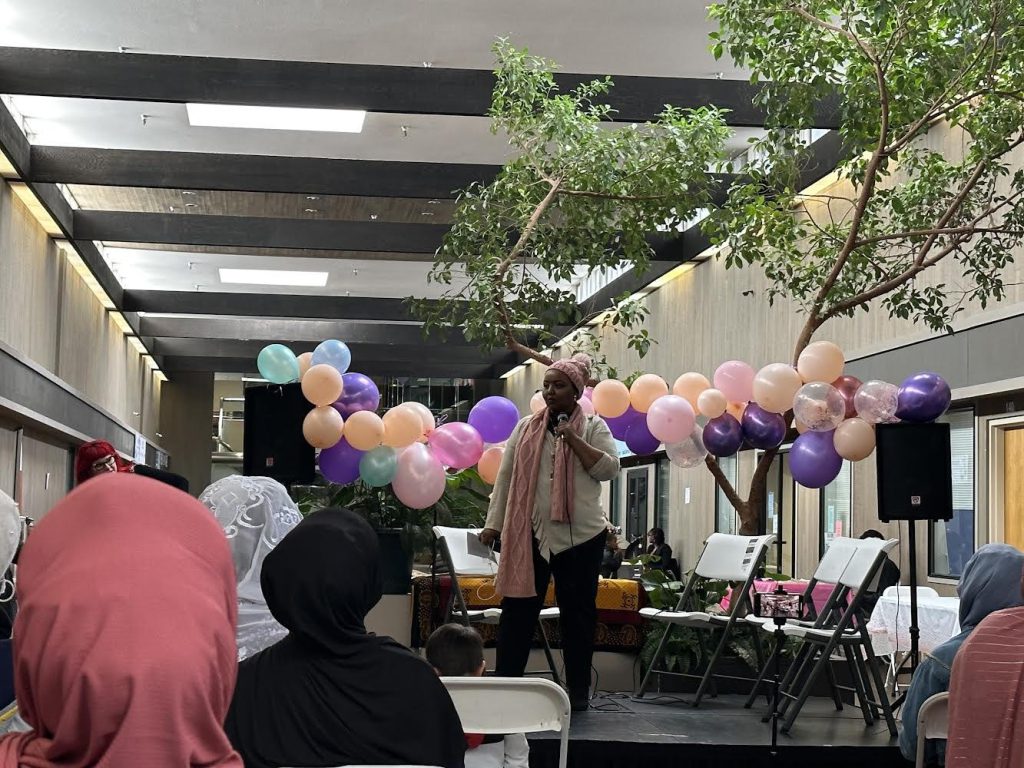
Recently, policy interns at Sahiyo have been interviewing members of the Washington Coalition to End FGM/C to learn more about coalition members’ important work toward policy creation on female genital cutting (FGC). Sahiyo’s policy intern, Sara Khattak, talked to coalition member Dr. Muna Osman, DNP FNP-BC, a prominent advocate in the work to end FGC in Washington state and a respected nurse. Muna has been a leading voice in the Washington movement for over 10 years. Growing up, Dr. Muna Osman was exposed to female genital cutting (FGC) and always opposed the practice, even though she didn’t fully understand it at the time. It wasn’t until she was in graduate school that she decided to make FGC the focus of her studies. “I came from a country that practices. I was in the Middle East, and it happened to me.” As she delved deeper into the issue, Dr. Osman found that doctors in the US often didn’t know how to address FGC or support survivors. This motivated her to develop a curriculum to educate clinicians beyond obstetrics and gynecology (OB/GYN) professionals about the negative short- and long-term impacts of the practice. Gaining the trust of her own community was one of Dr. Osman’s biggest challenges. “At the beginning, there was no community, because the people I’m teaching – even my professors in the graduate school – were like, who cares? It’s a foreign [practice],” she recalled. Over time, Muna found that slowly integrating conversations about FGC into her work with the community-founded safe motherhood program, Mama Aman, helped build that trust. “I started with pregnancy. But after I graduated, we worked with Mother Africa at the community level. People know that I’m volunteering. I don’t work for nobody. I don’t intend to make money off them, so they start listening to me.” Dr. Osman believes that truly making progress requires bridging the generational divide within immigrant communities. “We need to bridge the gap instead of making it bigger and give the respect they deserve, [even if] you’re a kid. You have the knowledge that we didn’t have. Like the parents. Most of the parents came to start a new life. We came to start a new life for our kids. We didn’t come here to become evil again.” Her approach involves empowering youth to assert their bodily autonomy, while also working to educate and engage adults in a respectful way. “We need to empower the kids and tell them, ‘say no.’ I don’t care who you talk to, your teacher, but the teacher needs to know. It’s a cultural practice.” Dr. Osman’s vision for the future includes establishing a comprehensive resource center to support survivors and communities affected by FGC. This center would involve crisis hotlines, therapists trained in cultural humility, and outreach workers embedded within different ethnic communities. “I had a vision that we will have a resource with all this money. To provide the education we need. We go to the communities and we always ask them ‘how much do you know about FGC?” By building a holistic, community-driven approach, Dr. Osman believes we can make real progress in ending FGC in the United States. As she put it, “we cannot say that a one-person approach fits all: We want to be culturally appropriate.” (Dr. Osman shaking hands with Governor Jay Inslee of Washington state after the signing of the Bill on FGC.) Those interested in getting involved can reach out to Dr. Osman directly or connect with the Washington Coalition and other organizations working on this critical issue. We extend our gratitude to Dr. Muna Osman for her invaluable contributions and insights. To learn more about our ongoing work and other interviews, visit Sahiyo’s website.
The Connecticut Coalition to End FGM/C Interview Series: Jo Keogh
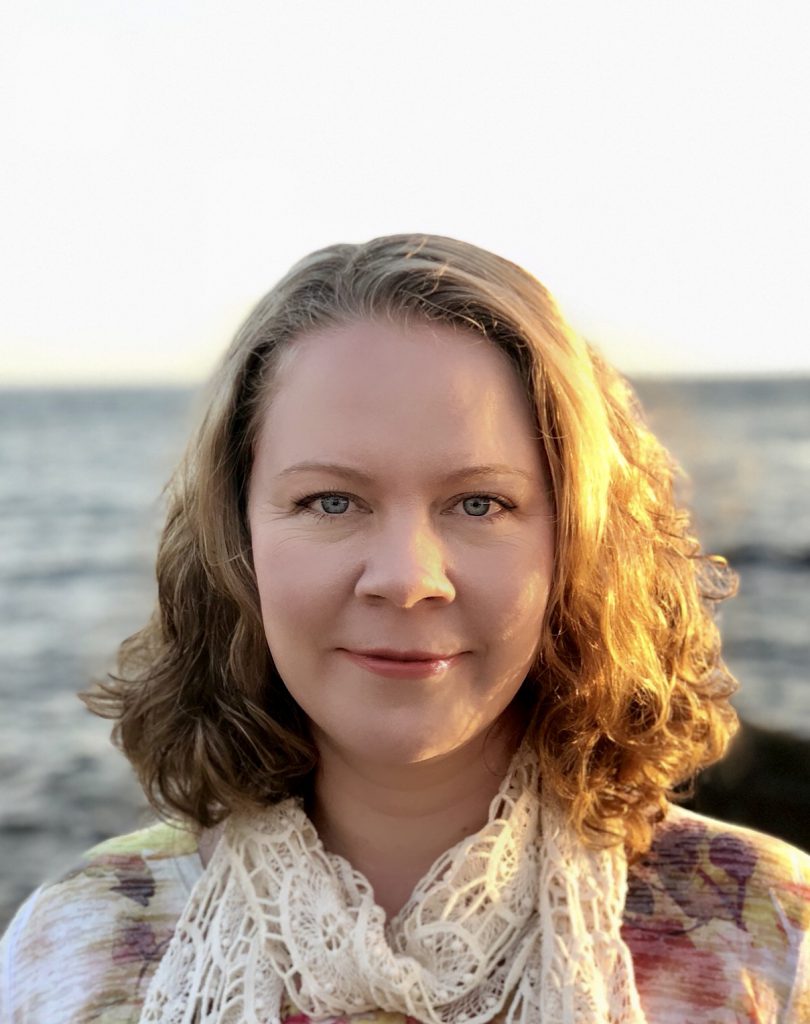
By Juliet Shires Recently, policy interns at Sahiyo have been interviewing members of the Connecticut (CT) Coalition to End FGM/C to learn more about each individual and to better understand all the important work they contribute towards ending FGM/C. The information below comes from an interview between Sahiyo’s former policy intern, Azalieh Erawoc, and CT Coalition member, Jo Keogh. Jo Keogh, a member of the Advisory Board at Sahiyo, is a founding member of the Connecticut Coalition to End FGM/C. She is passionate about issues surrounding the practice of FGM/C due to her background as a mental health counselor working with women with post-traumatic stress disorder resulting from gender-based violence. “Trauma is one of the biggest issues we have to deal with personally, societally, globally,” says Keogh, “I feel that it influences a lot of what is going on in the world today…without systemic change, healing on an individual level becomes impossible for a lot of populations.” Keogh got involved with FGM/C advocacy after reading about how a 2017 Michigan case overturned federal law, resulting in states being responsible for criminalizing FGC and conducting educational outreach. Keogh looked for a Connecticut law to protect those at risk of undergoing the procedure, but there were none. This inspired her to search for any bills about the issue in her state. Eventually, she reached out to Mariya Taher and Sahiyo after seeing their success in Massachusetts, and thus, the Connecticut Coalition to End FGM/C was born. Keogh emphasized the need for better education surrounding FGM/C for meaningful change. “Education is everything,” says Keogh.”In a perfect world, I wouldn’t have a job anymore…I wouldn’t be working with discrimination claims during the day and I wouldn’t be working with traumatized women at night. None of that would be necessary”. Keogh herself admits that at the beginning she didn’t know much about FGM/C, assuming it was a practice that didn’t occur in today’s world, let alone in the United States. “95% of what I know now about FGM/C, I didn’t know at the beginning. I just knew I didn’t want it to happen in my state…like me, the mass majority of people in this country have no idea what’s going on.” Keogh emphasizes the need for better education around FGM/C, explaining that many people ignore issues with an “it doesn’t affect me” attitude. The key is finding a way to educate people in a way that sticks and doesn’t just become a social “cause of the moment” to enact long-lasting change. Furthermore, Keogh recognizes how non-survivors of FGM/C should use their privilege to better educate themselves. She highlights her experiences of “shutting up and observing” when speaking with survivors in order to learn more about how FGM/C has affected others. Keogh has learned we shouldn’t make generalizations when speaking to survivors, and understands that not all women view their experiences as negative (for example, some women who have undergone FGM/C wear their experiences as a badge of honor). Not everyone will agree with the notions you may possess and it is important to remember that when doing this work, any advocacy “always, always, always must be survivor-centered.” Keogh also discussed the importance of mental health for advocates trying to improve laws around FGM/C. “I think sometimes with advocacy there’s this sense to be “on” all the time […] and to keep fighting until it’s done,” she says. “And I think it’s really important to give ourselves permission to tag out for periods of time without feeling guilt or that we’re “not doing enough.” “It’s important to figure out how much of yourself you can give at any point in time and to honor that,” she continues. “And not have guilt around that. If we come into the fight with a quarter of ourselves we’re just going to get knocked out. So, if we have to tag out, it’s ok. We can always come back in. It doesn’t mean we don’t care, it doesn’t mean we’re not passionate, it just means that we’re human”. Keogh encourages anyone who wants to be involved to participate knowing everyone has a unique set of skills to bring to the Coalition: “All of us have a particular constellation of knowledge that nobody else on the planet has. Advocating from that place is, I think, really powerful”. Looking forward, Keogh is optimistic about the future of legislation in Connecticut and the work ahead of the Connecticut Coalition. “What I’m seeing is women legislators, specifically, getting angry… Anger is one of my favorite emotions. I think anger is the emotion that is the closest to love, because we only get angry about what we value, [so if] they’re angry about it, it means they value the issue. They value the idea that women and girls should have protections against being cut in this state. Passivity is the death of an issue.” We would like to thank Jo Keogh for taking the time to sit down with our policy intern and for her continued work with the CT Coalition. To see the other interview spotlights we’ve conducted click here. Want to get involved? Visit https://endfgmcinct.com/ for more information or contact the CT Coalition Volunteer with Sahiyo Sign the petition to end FGM/C in CT
The African Women’s Clinic: An Interview with Australia’s Only FGM/C Clinic
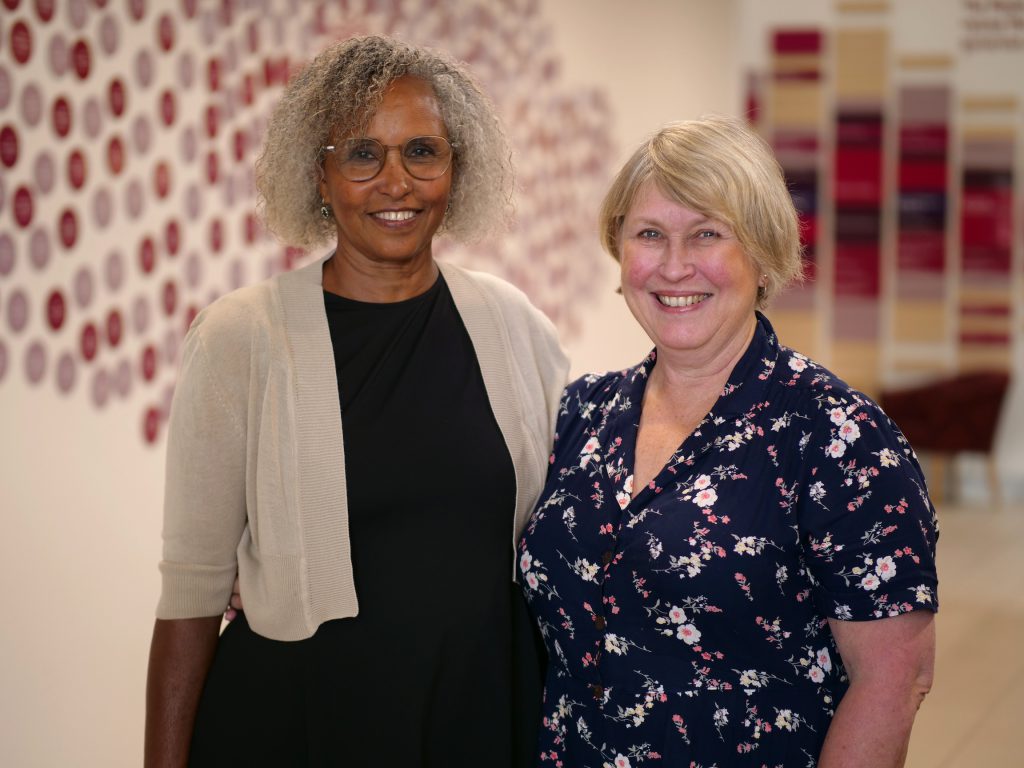
By: Kiah Leone While in Australia, I had the privilege of speaking with Marie Jones and Nigisti Mulholland from The African Women’s Clinic in Victoria, Australia to learn more about their clinic, the services they provide, and the current state of FGM/C-related care in the country. The African Women’s Clinic (AWC) is the only FGM/C-specific clinic in all of Australia. It’s staffed by women’s health nurses and midwives who provide confidential and comprehensive care to survivors living in the state of Victoria. For the last 14 years, the AWC has offered a safe space for survivors, while also providing FGM/C support and education resources. They have also made medical procedures such as de-infibulation more accessible to survivors. As a coordinator for the AWC, Marie works closely alongside Nigisti who is a coordinator for the Family and Reproductive Rights Education Program (FARREP)* at the Royal Women’s Hospital. FARREP is a program that provides services for women from places where FGM/C is practiced. Any survivor can self-refer to FARREP and once that contact has been established, a FARREP staff member can help the patient schedule their consultation, accompany them to their appointments, refer them to additional health services if necessary, and advocate for them if any issues arise. This close collaboration between FARREP workers and AWC clinicians has helped to foster an excellent environment to address the issue of FGM/C within a care setting. Clinic days are often filled with patient consultations, education and information sharing (involving books, diagrams, and mirrors), physical examinations, and deinfibulation procedures (when appropriate). Although clinic days may be busy, the advantage of a specialized clinic is that nurses and midwives at the AWC are able to spend as much time as needed with their patients. “This is the beauty of a FGM/C-specific clinic,” said Marie.“There is no 15-minute appointments. It might be 30 to 40 minutes or more.” Not only are staff able to spend more time with patients, but FARREP’s self-refer framework has helped to remove additional barriers to care such as long wait times. “It’s been wonderful for these women – they don’t have to wait long times to see a clinician, they can see us within two weeks or four weeks, ” explained Marie. “If they want de-infibulation on that day we do it on that day or if they want it two weeks later because they need some time to think about it, that’s not a problem, so the clinic has just made it so easy.” In addition to improving the availability of this type of care, staff at the AWC have also worked to improve the quality of care that survivors in Victoria receive by prioritizing survivors’ safety and comfort. According to Marie and Nigisti, this often starts by having multiple preliminary conversations to ease any patient concerns before they even arrive in the clinic. “I think that having this setup has helped them to build confidence in the early days,” said Nigisti. “Before they wouldn’t come for a review, but now they come in for a review and make an appointment to express their feelings and gratitude.” Once in the clinic, a staff member will usually take a patient history and identify the type of cutting the patient has undergone. They’ll also discuss any health issues they may be experiencing, whether they’re eligible for a de-infibulation procedure, and what steps would be involved if so. In addition to these services, education remains a cornerstone for staff at the AWC. “At the AWC, we do education not only in the survivors’ communities, but also for service providers to understand the cultural background and the need to be culturally aware and competent to look after these women,” explained Nigisti. This need for greater cultural awareness and competency amongst care providers is made clearer when patients share stories with Marie and Nigisti. Patients discuss all kinds of negative healthcare encounters they’ve experienced prior to finding the AWC. “We’ve had women with traditional cutting who try to find somewhere else to get help and the GPs [general practitioners] don’t know about FGM/C and you know the survivors go on for years before they actually find the clinic, but there’s lots of lots of stories like that,” Marie elaborates. “We would like to give a lot more education out to the community for all health professionals, so that we get the word out, because even after 14 years, there are still a lot of health professionals and GPs that don’t know that we exist, which is very unfortunate.” The stories shared here from Marie and Nigisti help to highlight the fact that FGM/C is a global issue that requires both local and international collaboration to address. As Australia’s first and only FGM/C clinic, the AWC has demonstrated a strong commitment to culturally safe and comprehensive care for survivors. In addition to offering a number of specialized services for patients, team members from both the AWC and the FARREP have emphasized the importance of expanding education efforts and a need for further resources in order to make that possible. To find out more about the African Women’s Clinic – or to learn how you can support the work that they do – please visit the African Women’s Clinic’s website. *Please note that since this discussion, Nigisti Mulholland has retired. Congratulations on your retirement, Nigisti! Thank you for your years of service supporting the health and well-being of FGM/C survivors.
Sahiyo’s Editorial Team introduces Zoom interviews!
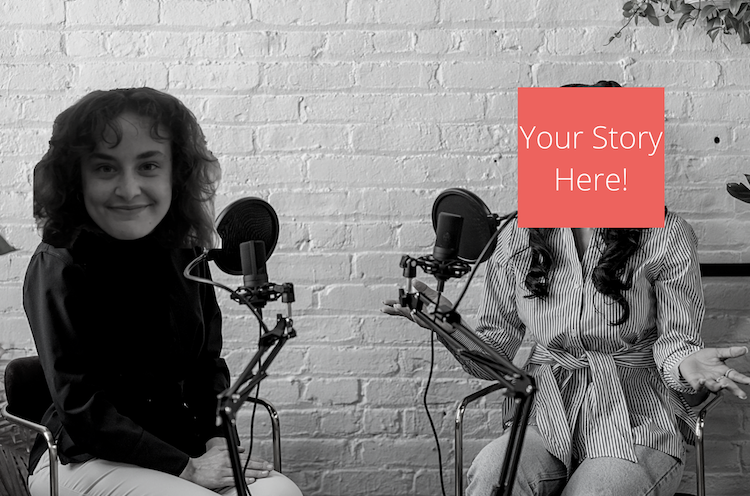
Sahiyo’s dedicated staff have been working to expand our reach and build a close-knit community of survivors, advocates, and volunteers for years now, and as the world responds to COVID-19, digital communication has been a consistent thread tying us all together. We want to use our many digital platforms to create a positive, impactful space for everyone supporting our mission. Sahiyo’s Editorial Team is excited to announce our newest development: Zoom interviews! We can’t be together in person (for now at least), but this is one way to overcome the many challenges that create a sense of physical and emotional distance within the Sahiyo community. Our Team wants to connect with you to share your stories and your vision for what a world without female genital cutting could look like. So whether you know someone who has been affected by FGC, you’re a survivor, or you have something to say about the work to end FGC, we want to hear from you. Over Zoom, we’ll chat about your ideas and work together to build a blog post. This is designed to reduce the pressure on those eager to share their ideas, but are intimidated by the writing process. For more details, please email us at: editor@sahiyo.com.
